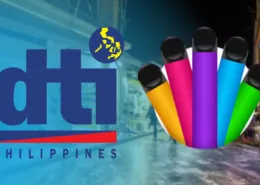Russia Platform Law Excludes Alcohol/Tobacco Sales
New Bill Aims to Regulate E-commerce, Equalize Rules with Traditional Trade
Russia is developing comprehensive legislation to regulate its rapidly growing “platform economy,” including online marketplaces, with plans for adoption by the end of 2025. According to Maxim Topilin, Chairman of the State Duma Committee on Economic Policy, the bill aims to establish clear rules for digital platforms and level the playing field between electronic and traditional commerce.
Recognizing the exponential growth of e-commerce, now accounting for roughly four trillion rubles in sales via marketplaces, the government initiative (partly spurred by the platforms themselves) seeks to create a unified regulatory approach. The law will define various types of digital platforms, from online stores to service aggregators, with specific focus on intermediary platforms where transactions from selection to payment occur.
Key features include mandatory detailed product cards to ensure traceability and authenticity, particularly for labeled goods, and the creation of a central registry for digital platforms. This registry, likely operated by a federal ministry, will require platforms to submit transaction data for tax oversight, trade statistics, and monitoring purposes.
Crucially, Topilin confirmed that despite requests from marketplaces to allow online sales of alcohol and tobacco, the new bill will not permit this. The legislation will uphold existing laws that prohibit the remote sale of excisable goods like alcohol and tobacco products, restricting them to traditional offline retail formats.
The bill also aims to clarify liability rules for marketplaces concerning consumer rights violations (e.g., deception, incomplete information) and address disparities in requirements for workers, such as health certifications for self-employed delivery personnel handling food. Concerns about verifying the quality of foreign goods and preventing counterfeit items are also being addressed, potentially using digital tools linked to the registry.
The government is expected to introduce the bill to the State Duma in May, with potential passage by year-end.
- News source: Алкоголь и табак не попадут на маркетплейсы
- UK Considers £100 Fines for Vaping at Outdoor Bus Stops - July 29, 2025
- Spain Galicia to Ban All Vape Sales and Use for Minors - July 29, 2025
- Poland to Tax Nicotine Pouches & Other Vape Products from Aug 1 - July 29, 2025









